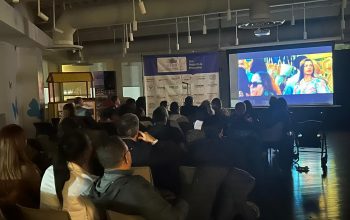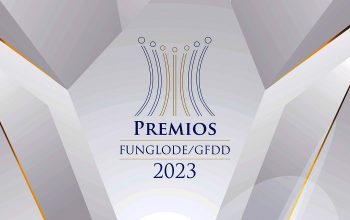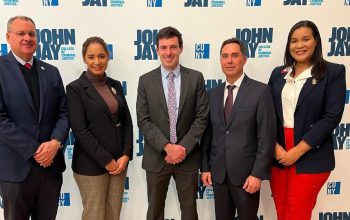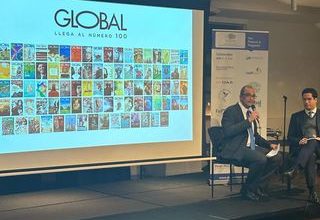news
Civil Society Instrumental in the Creation of Post-2015 Development Agenda, Asserts Chilean Ambassador to the UN during GFDD’s Global Roundtable
January 30, 2014
On January 17, the first 2014 edition of GFDD’s online broadcast program “Global Roundtable” was delighted to host His Excellency Eduardo Gálvez, Ambassador and Deputy Permanent Representative of the Permanent Mission of Chile to the United Nations.
Natasha Despotovic, GFDD Executive Director, warmly welcomed the honored guest to participate in the Global Roundtable discussion which, this time, primarily focused on one of the
most current topics at the United Nations – Financing for Sustainable Development. The United Nations is fast approaching the 2015 deadline for the Millennium Development Goals (MDGs) and the desire to integrate the Sustainable Development Goals (SDGs) within a single set of international development goals post-2015. How to finance this agenda is a top priority for all high-level international discussions and also see how NGOs can best focus their efforts in order to best influence the
creation of the post-2015 development agenda.
The International Conference on Financing for Development took place in 2002 in Monterrey, Mexico, marking an important landmark in the partnership on global development. Heads of State and Government joined by the Heads of the United Nations,
the International Monetary Fund, the World Bank, the World Trade Organization, prominent business and civil society leaders as well as other stakeholders adopted the outcome document of the Conference, a.k.a. the “Monterrey Consensus,” which has become the major reference point for international development cooperation. The Follow-up International Conference on Financing for Development to review the implementation of the Monterrey Consensus was held in Doha, Qatar in
2008. In the course of intense intergovernmental negotiations, the Conference concluded with the adoption of the Doha Declaration on Financing for Development, which included the key message of a strong commitment by developed countries to maintain their Official Development Assistance to developing nations irrespective of the current financial crisis.
According to Ambassador Gálvez, the International Conference in Monterrey was important for three reasons. First, it came
at the right moment, after a decade of various international conferences covering only specific issues and after Asian markets were recovering from the 1997 currency crisis, “It took 5 years for the international community, from 1997, to negotiate for the conference in Monterrey,” noted His Excellency. Second, the Conference in Monterrey uniquely brought together not only the United Nations, the World Bank and the International Monetary Fund but also representatives from
developing countries, the private sector and NGOs, who “pushed forward things that they had passion for.”
Third, Monterrey provided the agenda for development that consisted of three main elements, such as sustainable development for domestic, international and systemic issues.
Civil Society Instrumental in the Creation of Post-2015 Development Agenda, Asserts
Chilean Ambassador to the UN during GFDD’s Global Roundtable
Mr. Gálvez went on comparing Monterrey and Doha Conferences, with the latter also taking place during the 2008 financial crisis.
“Doha Conference, however, happened not at the right moment. There was no momentum. There was no mood,” stated the diplomat.
In line with the discussion, the Chilean Ambassador pointed out to the components of Financing for Development, particularly those that are paid little attention, such as trading issues.
To illustrate, he cited the former President of the Dominican Republic, Dr. Leonel Fernández, who at the 2012 UN Food and
Agricuture High-Level Debate said that, “Financial speculation is exacerbating market fluctuations and this exacerbation is generating uncertainty – this uncontrolled, unregulated exacerbation is provoking a dramatic impact on countries that are net food importers.”
To continue, the honored guest featured one of the Monterrey positive outcomes — innovative financing – which was just briefly mentioned in the Consensus but has been rapidly growing
recently. In essence, it means taking money from those who have it and giving it to those who don’t.
With regards to Financing for Development agenda for Sustainable Development Goals, His Excellency said that it will need to include three main elements; economic growth, social inclusion and environmental sustainability. For that reason in 2014 there will be many international high-level meetings organized mostly in Latin America, including in Mexico on social
inclusion, in Peru on climate change, at the General Assembly on political side of environment, on Monterrey and on the post-2015 agenda.
To answer the posited question about global economic governance and what makes it inclusive and coherent, Ambassador Gálvez argued that global economic governance as a designation of regulations intended for organization and centralization of human society on a global scale will be coherent and inclusive only if decisions made by G-20
are taken and approved by the UN General Assembly.
Toward the end of this engaging conversation, the Ambassador touched upon the role of NGOs in the creation of post-2015 development agenda. He particularly stated that, politically, they are very important because at the end of the day it is they who implement the adopted resolutions. Therefore, civil society has to be part of all processes and discussions from the very beginning till the very end, as it was seen and
experienced in Monterrey.”
About Eduardo Gálvez
His Excellency Eduardo Gálvez is Ambassaodor and Deputy Permanent Representative of the Permanent Mission of Chile to the United Nations. Mr. Gálvez has previously served as Ambassador and Director for Multilateral Affairs, and as Ambassador and Director for Planning in the Ministry of Foreign Relations. He has also occupied the functions of Chief of Staff to the
Minister of Foreign Affairs, Minister Counsellor at the Embassy of Chile to the US, Counsellor at the Directorate for Multilateral Economic Affairs, Counsellor (economic and development affairs) at the Chilean Mission to the UN, and Head of the World Trade Organization Bureau at the Directorate for Multilateral Economic Affairs. He was First Secretary at the Chilean Embassy to France, and Second Secretary at the Directorate for Multilateral Economic Affairs and at the Chilean Embassy to the
United Kingdom. Mr. Gálvez obtained a Master of Science (International Relations) from the London School of Economics and Political Science after graduating from the Faculty of Law at the University of Chile and from the Foreign Service Programme at the University of Oxford.
About the Global Roundtable
The regular series, GFDD Global Roundtable is also a part of GFDD’s program to support the work of the United
Nations and, as a non-governmental institution affiliated to it, contribute to the visibility and understanding of its work.






